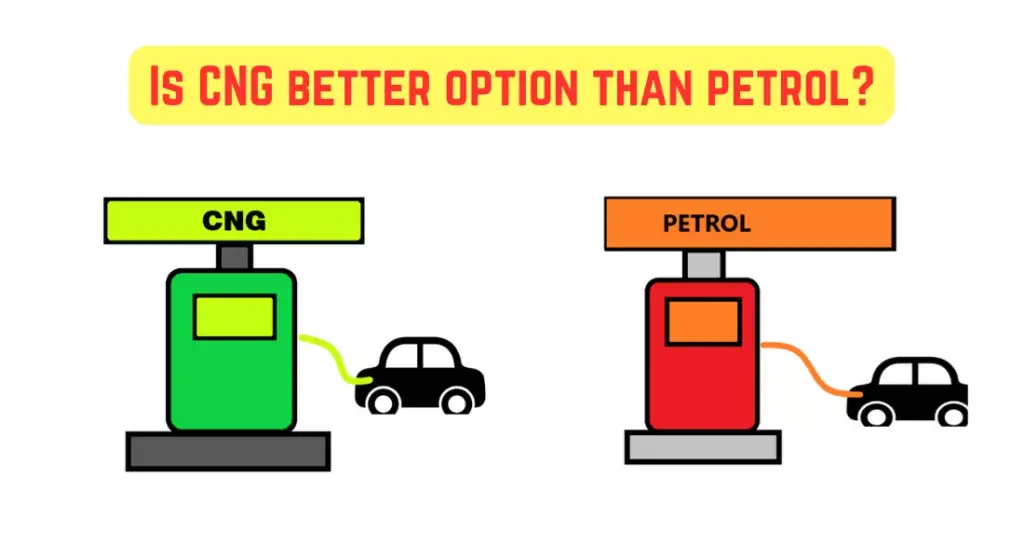Does CNG burn more efficiently than petrol? Compressed Natural Gas (CNG), an eco-friendly and sustainable fuel substitute for conventional fuels, has shown great potential in the race to unseat petrol, the long-time leader.
Researchers, environmentalists, and regular commuters are all interested in the discussion around the relative efficiency of compressed natural gas (CNG) vs petrol.
To find out if CNG really burns more efficiently than petrol, read on as we explore the combustion, environmental impact, and overall efficiency in this article.
READ ALSO:
- International Driving Permit: Meaning, Facts and More
- Police Clearance Certificate: Easy Steps How to Obtain It
- Apply for Police Clearance Certificate in Nigeria
- How to Jumpstart a Car in 7 Easy Steps
- Vehicle Paper Renewal
Does CNG Burn More Efficiently than Petrol?
Still wondering and asking “Does CNG burn more efficiently than petrol?” Well, let’s find out.
The combustion process is at the center of the efficiency controversy. Combustion occurs in both petrol and CNG, providing energy that moves cars forward.
However, while petrol is a complicated blend of hydrocarbons, compressed natural gas (CNG) is mostly made up of methane, a hydrocarbon with a basic molecular structure.
Methane’s simpler molecular structure promotes cleaner, more thorough burning, which minimizes byproduct production and maximizes energy conversion.
The foundation for a possible efficiency benefit for CNG is provided by this basic variation in molecular structure.
Efficiency takes into account the effects that fuel burning has on the environment in addition to energy conversion.
Does CNG burn more efficiently than petrol? When compared to petrol, CNG burns fuel more cleanly. By reducing the amount of greenhouse gases and other pollutants released into the atmosphere during CNG combustion, air pollution is reduced, and the negative consequences of climate change are lessened.
In this regard, CNG not only has the potential for more environmentally friendly burning, but it also has the potential for more efficient burning.
Determinants of Converting Petrol Cars to CNG Cars
Financial Aspects
In addition to environmental considerations, the economic factor is a major factor in determining a fuel’s efficiency.
Budget-conscious customers find compressed natural gas (CNG) to be an appealing alternative to petrol because it is typically less expensive.
CNG’s promise for increased efficiency and cheaper cost make it a strong candidate for use in the automotive industry.
Infrastructure Difficulties
Even though CNG combustion efficiency seems promising, infrastructure-related issues shouldn’t be disregarded.
The fact that petrol stations are widely distributed is evidence of the well-established infrastructure that supports conventional fuels.
However, there is still work to be done on the CNG infrastructure, which will hinder its wider adoption. To fully realize the benefits of CNG as an environmentally benign and more efficient alternative, several obstacles must be overcome.
In Summary
Does CNG burn more efficiently than petrol? It’s clear as we explore the complicated world of fuel efficiency that CNG has a lot of potential. It is a cleaner and possibly even more effective fuel substitute than petrol.
To fully realize the promise of CNG, however, infrastructure issues must be resolved. Also, a conducive environment must be created.
Future technological breakthroughs and a heightened consciousness of environmental sustainability could lead to a scenario in which CNG overtakes other vehicle fuels as the primary mode of transportation.
But then, when it comes to fuel efficiency and environmental friendliness, CNG beats out petrol as a top candidate.
With a lesser environmental impact, more affordable price, and a simpler molecular structure, it is a desirable alternative in a world experiencing air pollution and climate change. So when next you ask “does CNG burn more efficiently than petrol?” keep that in mind.
No doubt, infrastructure barriers provide difficulties, but if these problems are resolved together, there’s a chance that CNG will eventually take the lead in the race for a greener and more effective transportation system.




